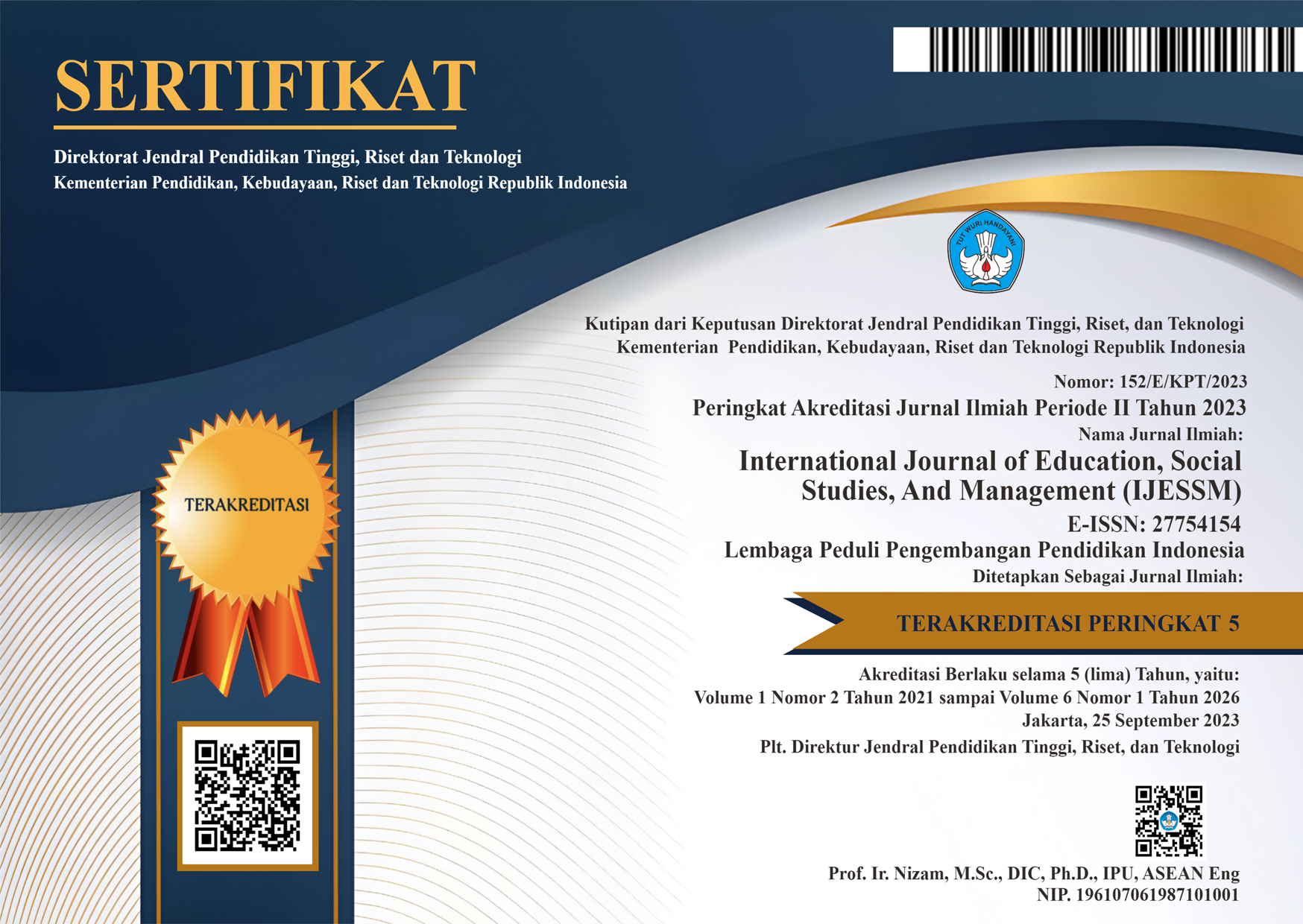The Effect of Word Search Learning Media in Indonesian Language Learning on Student Learning Outcomes Grade V Elementary School
DOI:
https://doi.org/10.52121/ijessm.v4i1.224Keywords:
Learning Media, Word Search, Learning OutcomesAbstract
This study was conducted to understand the effect of word search learning media in Indonesian language learning on learning outcomes of fifth grade students. This research uses an experimental method involving a quantitative approach with the type of Quasi Experimental Design. The variables in this study consisted of independent variables (X), namely learning media looking for words in Indonesian language learning and dependent variables (Y), namely student learning outcomes. The population of this study were all grade V elementary school students with a total of 168 students, and the sample in this study was class V.A with a total of 28 students as an experimental class. Data collection techniques using tests and documentation. The implementation of the research implementation is to conduct an initial test (pretest), carry out treatment, and conduct a final test (posttest). Before using the word search learning media, the completeness rate only reached 71.4%. However, after using the learning media, the completion rate increased to 100%. From the t-test results, the sig. (2-tailed) of 0.00 > 0.05. This indicates that the null hypothesis or Ho is rejected and the alternative hypothesis or Ha is accepted. So it can be concluded that "there is a significant effect of learning media looking for words in Indonesian language learning on the learning outcomes of grade V elementary school students".
Downloads
Published
How to Cite
Issue
Section
License
Copyright (c) 2024 International Journal Of Education, Social Studies, And Management (IJESSM)

This work is licensed under a Creative Commons Attribution 4.0 International License.

















